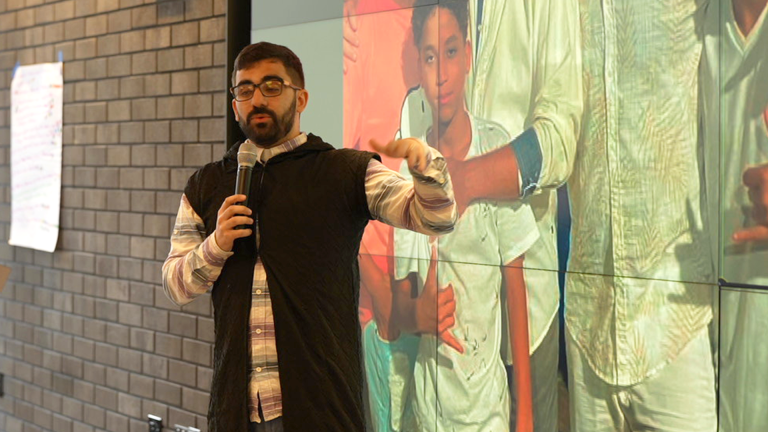
Insights
An Openly Gay Pastor Leading with Faith and Love
Bob Luiz Botelho is a gay Pentecostal evangelical pastor and activist who works directly with the LGBTIQ community in Brazil. He founded the organization Evangelicals for Diversity, which has created a network for LGBTIQ evangelicals to connect and share experiences.
“So many LGBT people come to me or to my organization to talk,” Botelho said. “They feel guilty, they feel pain, they feel condemned by the Bible, by the church, by Jesus, persons of Jesus. We do our work of pastoral care, studying the Bible with a queer perspective and giving tools and instruments to learn how to read the Bible without the fundamentalist glass.”
Botelho said that the queer perspective of faith is not just for Christianity, but it was just the Christian perspective he could talk about. The queer perspective of faith is to understand that we do not have a complete view of God, according to Botelho.
“So to be an image of God is to understand that everybody represents a piece, or a part, or a pixel of the holy picture, which is God. And I like to think and to imagine in a colorful God,” Botelho said.
Botelho talked about the importance of allowing for the diversity of bodies and identities.
“God wants to give us the possibility to name ourselves,” Botelho said. “Because that's part of the creativity of God: ‘I'm gonna name myself.’ My document’s name is not Bob, but God gives me the creativity to find my body as a ‘Bob’ body. And that's amazing.”
Botelho said he was afraid the LGBTIQ community in Brazil would not accept him as a religious person, but the support he has received has surprised him.
“The people say, ‘Are you a queer pastor? Can you pray for me? Can you do my wedding day?’ The LGBT community is not without faith,” Botelho said.
Botelho said that since 2019, when he was invited to discuss LGBTIQ rights from a religious perspective at the Organization of American States General Assembly, his greatest focus has been advocacy. Specifically, Botelho works with political leaders to protect LGBTIQ rights.
“I give instruments and tools for all the congressmen, parliaments, organizations, civil society, and I write, and I give Bible studies, not because I want to evangelize them, not because I want to proselytize, but because they are going to use these arguments to face the religious fundamentalism and also to promote dialogue with civil society,” Botelho said.
Botelho’s day-to-day work as an activist varies; this can range from writing for Brazilian newspapers to mentoring pastors who want to come out of the closet. As a U.N. Rights and Religion Fellow for Outright, Botelho has met with diplomats and country missions at the United Nations Headquarters in New York City and supported the LGBTI Core Group by giving them instruments to face religious fundamentalism and work with countries that persecute LGBTIQ people using religion. According to Botelho, religious perspectives are a vital tool to face religious fundamentalism and advocate for LGBTIQ rights.

Botelho said that his favorite part about being an activist is the miracles. He said, for example, that he wrote a statement using Bible verses that convinced a Brazilian city’s government not to continue with a law against gender-neutral bathrooms. Botelho said he likes to call them miracles, but not because God did them.
“We did this. Our bodies did this. But it's a miracle because Brazil is the country that most kills LGBT people around the world, even in countries that being LGBT is a crime,” Botelho said.
In 2022, there were an estimated 273 violent deaths of LGBTIQ people in Brazil.
“The people like to say, ‘Oh, Brazil is amazing. We are for LGBT. We have 4 million in the Pride Parade.’ But actually, we have Pride Parade in São Paulo, not in Brazil. São Paulo is not a reflection of all Brazil,” Botelho said.
Although religion is used to promote violence, Botelho said, faith-based organizations can also promote LGBTIQ rights, anti-racism and reproductive freedoms. Botelho said that it is essential to see religion not just in opposition to the LGBTIQ rights movement but as a partner to give the movement strength and confidence.
If Botelho could go back in time and talk to his younger self, he would offer reassurance.
“Before coming out from the closet, I would like to hug Bob, who is 12 years old and tell them God has dreamed with you. My sexuality is part of the dream of God for me,” Botelho said. “And I have freedom to use this dream as the creative way that I can.”

Take Action
When you support our research, you support a growing global movement and celebrate LGBTIQ lives everywhere.
Donate Now